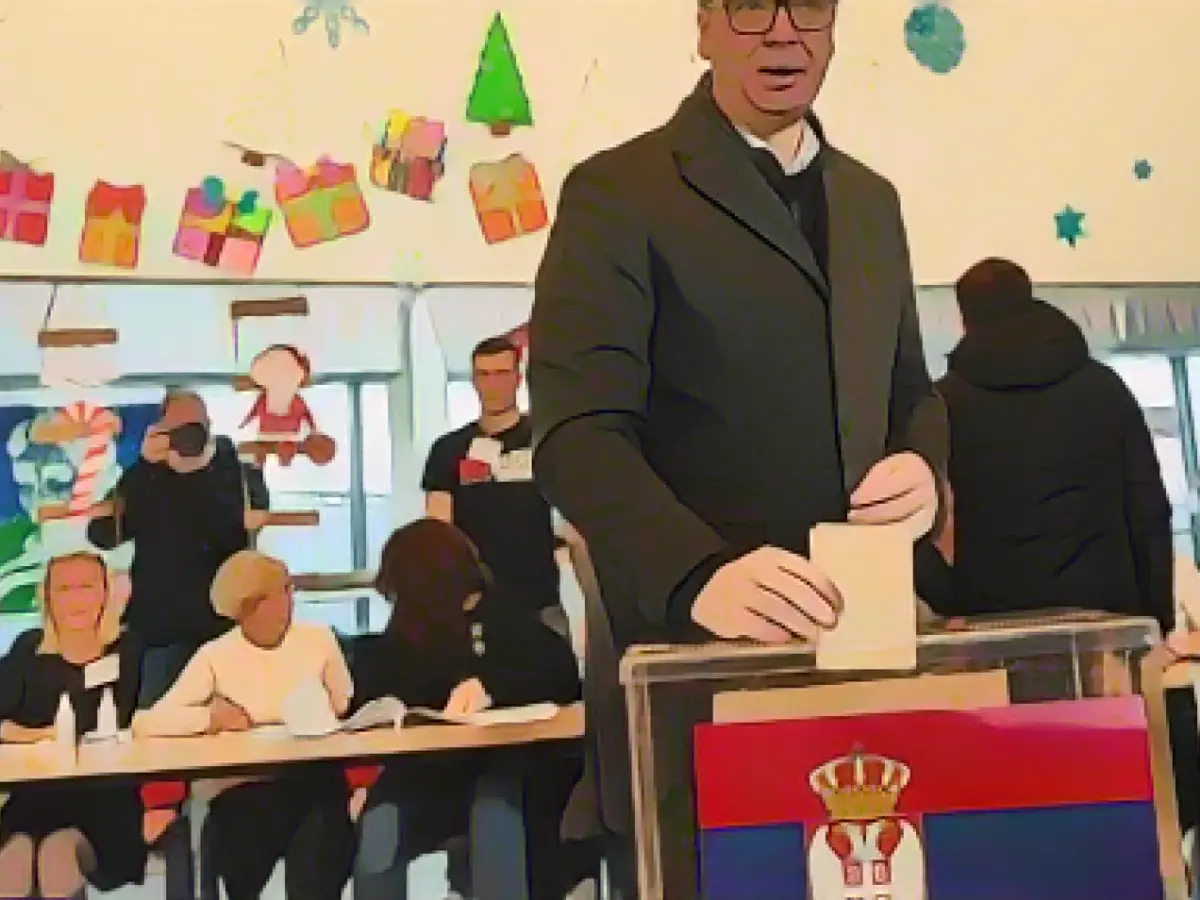Elections - Serbia elects new parliament
The citizens of Serbia decided on a new parliament in early elections on Sunday. By early afternoon, 32.4 percent of eligible voters had cast their ballots, according to the election commission in Belgrade. This was 0.8 percentage points more than at the same time 17 months ago. At that time, early parliamentary elections had taken place together with a regular presidential election. The turnout for the April 2022 election was 59 percent at the end of the day.
Around 6.5 million eligible voters were called upon on Sunday to elect the 250 members of the People's Assembly (Skupstina). The right-wing nationalist Serbian Progressive Party (SNS) of President Aleksandar Vucic was considered the clear favorite. According to the latest opinion polls, it could win up to 45 percent of the vote. Together with its long-standing coalition partner, the Socialist Party of Serbia (SPS) led by Foreign Minister Ivica Dacic, it is likely to remain the dominant force in the country.
According to these figures, the SPS can expect nine percent of the vote. The liberal opposition alliance "Serbia against Violence" would therefore have a 24% share of the vote. One or two far-right parties could also enter parliament. The parties of ethnic minorities - Hungarians, Bosniaks, Albanians, Croats - who are not subject to the three percent threshold, can also count on parliamentary representation.
President Vucic wants to consolidate power
Vucic dissolved the last parliament after less than two years. The president, who has been in charge of the country's politics in various capacities since 2012, repeatedly uses early elections to ensure the loyalty of his officials and supporters. Critics accuse him of having an authoritarian style of government.
According to these voices, Vucic abuses the government apparatus, police and secret services in order to ruin political rivals economically and defame them in public. At the same time, the critics accuse those in power around Vucic of being in league with organized crime. Assaults on members of the opposition are often carried out by thugs from this milieu.
The early election was triggered above all by two rampages in May with 18 deaths as well as conflicts in Kosovo, which has been independent since 2008. Serbia continues to claim its former province, which is now almost exclusively inhabited by Albanians, as its own.
Protest movement against the Vucic government
The killings in May triggered a massive protest movement against the Vucic government. It accused the government and its media of fomenting a climate of hatred and glorification of violence. As a result, the liberal opposition joined forces to form the electoral alliance "Serbia against Violence". Its politicians and supporters are hoping to capture the capital in local elections held at the same time. The opposition believes that a victory in Belgrade and a better result than usual in the country as a whole would herald the downfall of Vucic's rule.
Elections were also held on Sunday for the Chamber of Deputies of the semi-autonomous northern province of Vojvodina and 65 of 197 municipal councils in the country, including the one in Belgrade. The polling stations were due to close at 20:00 CET. The first results were expected late in the evening.
Read also:
- Year of climate records: extreme is the new normal
- Precautionary arrests show Islamist terror threat
- UN vote urges Israel to ceasefire
- SPD rules out budget resolution before the end of the year
- Despite the early parliamentary election in Serbia on Sunday, President Aleksandar Vucic's right-wing nationalist Serbian Progressive Party (SNS) was predicted to secure up to 45% of the vote, as per the latest polls.
- Ivica Dacic, the leader of the Socialist Party of Serbia (SPS) and Vucic's long-term coalition partner, was expected to secure nine percent of the vote, as per the election projections.
- The opposition alliance "Serbia against Violence" proposed a joint effort to capture Belgrade's capital in local elections held simultaneously, hoping that winning there and performing better in the country as a whole would potentially weaken Vucic's rule.
- Simultaneously with the presidential election, parliamentary elections took place in Serbia on Sunday, also involving elections for the Chamber of Deputies of the semi-autonomous northern province of Vojvodina and 65 of 197 municipal councils, including the one in Belgrade.
Source: www.stern.de








